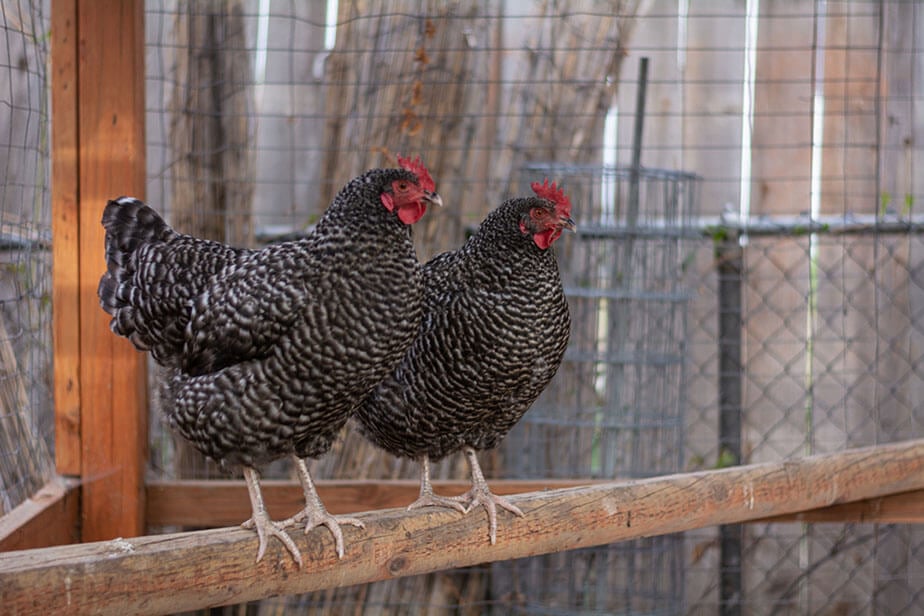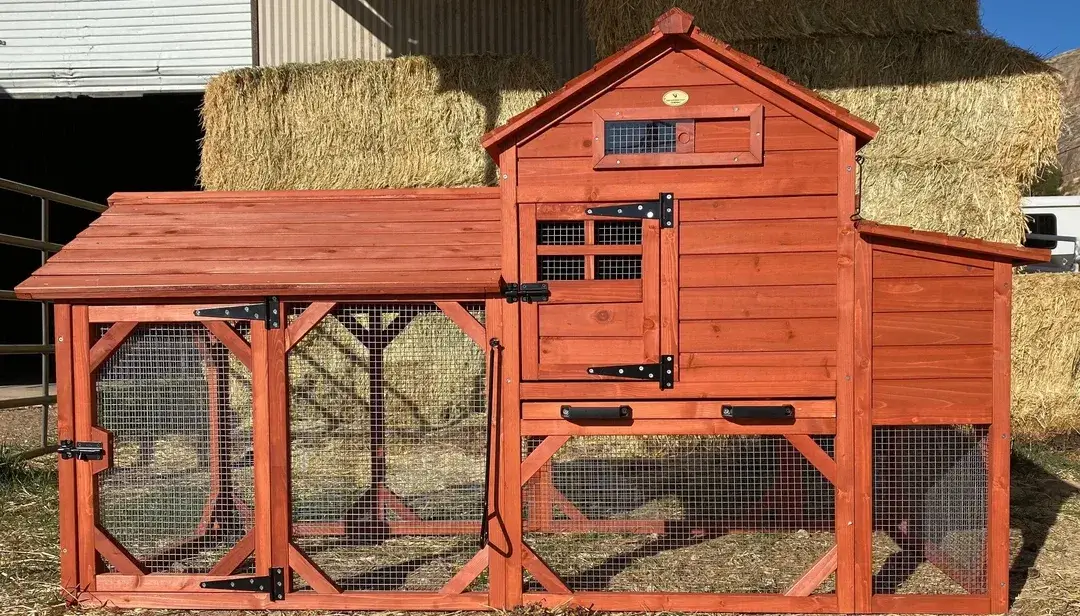So, chicken coop on wheels vs. immovable coop—which one is it going to be? These also come in pairs of mobile vs. permanent coops, stationary vs mobile chicken houses, etc. How you call your coop is entirely up to you—as is the way you decide on either of them. The thing is you’ll have to face a couple of challenges first.
The opinions are divided so some chicken keepers will tell you to go for mobile coops or chicken tractors for the benefits of having your poultry foraging and fertilizing your land. Others, still, will swear by immovable coops favoring the simple fact that this way your flock is better protected against predators and inclement weather. But there’s much more to this.
That’s why it can’t hurt to have some help from the outside to steer you to either side when weighing your options regarding your next chicken coop. The phrase “hen house on wheels” sounds like some magic is involved and necessary to figure out the problem. Instead, we take a bit more down-to-earth approach to help you reach your final conclusion.
Buckle up, today we tackle the difference between immovable and mobile coops, the best way to shelter your hens having in mind your specific situation, and more.
Chicken Coop on Wheels Pros and Cons
A portable coop or a chicken coop on wheels is an option for chicken housing with a lightweight and mobile construction that allows you to keep moving your chickens to fresh pasture. It’s basically a chicken coop with a run made of wood, PVC pipe, or metal framework and comes complete with wheels—but it has no floor so your flock can forage and scratch to its heart’s content.
So, why put your chicken coop on wheels? You can have three objectives met—your chickens get to have daily access to fresh healthy grass, they peck around for insects and pests, plus, they fertilize your ground. And it’s equally as fun to entertain the idea that a portable option allows you to get all that with one single blow.
Yet, portable coops or chicken tractors have their downsides too. A chicken coop on wheels might not be your first option if you have a larger backyard farm and need bigger logistics for your chicks.
Your portable coop needs to be light and easy for you to move so this is a better option if your chicken husbandry arrangements are rather on the small scale. This also might not be a good idea if you're not happy about moving your chicken coop daily or if your schedule doesn’t allow the extra time for it.
But there’s so much more to moveable chicken coops and that’s why we list some more useful information for you in the pros and cons table below. These should help especially if you are buying your first chicken coop online.
The Immovable Coop Pros and Cons
The immovable backyard chicken coops aka permanent or stationary coops are a type of chicken housing consisting of shed-like structures with adjacent heavy-duty chicken runs.
The immovable chicken coop types are… well, immovable. This allows for their structure to be more solid and sturdy, keeping the predators out and safeguarding your chickens from temperature extremes.
Ideally, your chicken coop and what’s inside it is made to serve the intended purpose of sheltering your chickens and lending them a safe space to roost and lay their eggs. The immovable chicken coop does justice to the name in this respect. It also doesn’t require much space so it could be a ticket for those with limited backyard arrangements.
On the other side of the coin, the number one problem with permanent coops is the fecal manner buildup which creates maintenance issues. With an immovable coop, you’ll have to stick to a strict schedule of cleaning the coop floor at least once a week.
This system of chicken rearing confines chickens to the same place, which means the ground your coop is on will soon be reduced to nothing but bare dirt.
But we’re far from reaching any definitive conclusions yet, so below is another pros and cons table to help you put your finger on what type of chicken coop would be the best for you.
How to Choose the Best Chicken Coop for Your Needs?
To choose the best chicken coop for your needs, consider the size of your flock, the space you have available, as well as the price tag. With that in mind, if your garden is too small for numerous rotations and your flock consists of ten chickens and counting, you might want to consider a stationary chicken coop.
Though pricier than mobile coops, stationary coops are sturdier and can last you longer being able to stay in place during harsh weather and withstand wear and tear.
The Chicken Coop Company makes stationery chicken coops with duration and sturdiness in mind which pays off in the long term. Our coops are made of heavy-duty black hardware and carabiners complete with heavy gauge wire mesh along all sides of the run extensions. The specially designed flashing on nesting boxes prevents rain from getting in and their elevated position and structural support keep predators at bay.
But what if a chicken coop on wheels is a better option for you? Let’s tackle that briefly in the section below.
Should You Put Your Chicken Coop on Wheels?
A chicken coop on wheels is a better option than a stationary coop for households where:
- Money is tight and you want to save on your equipment
- You’d rather not commit to the extra time needed to clean the stationary chicken coop
- Pest control is high on your priority list
- Your flock has feather-pecking and cannibal problems
Yet, there are other options if you want to have your chickens congregate at an extra safe place without compromising on movability. Here at the Chicken Coop Company, you can choose to add wheels to your chicken coop, turning an immovable chicken coop into a movable one with minor readjustments and not many resources. All you need is a hand drill, a wrench, and a clamp. Nifty, right?
Next Steps
By now you must have some kind of idea as to what type of chicken coop would be the right fit for your backyard. If still having doubts, we’re always happy to help and answer any of your questions so you can make a better decision regarding your next chicken coop. Contact us via phone or email and we’ll help steer you in the right direction.





